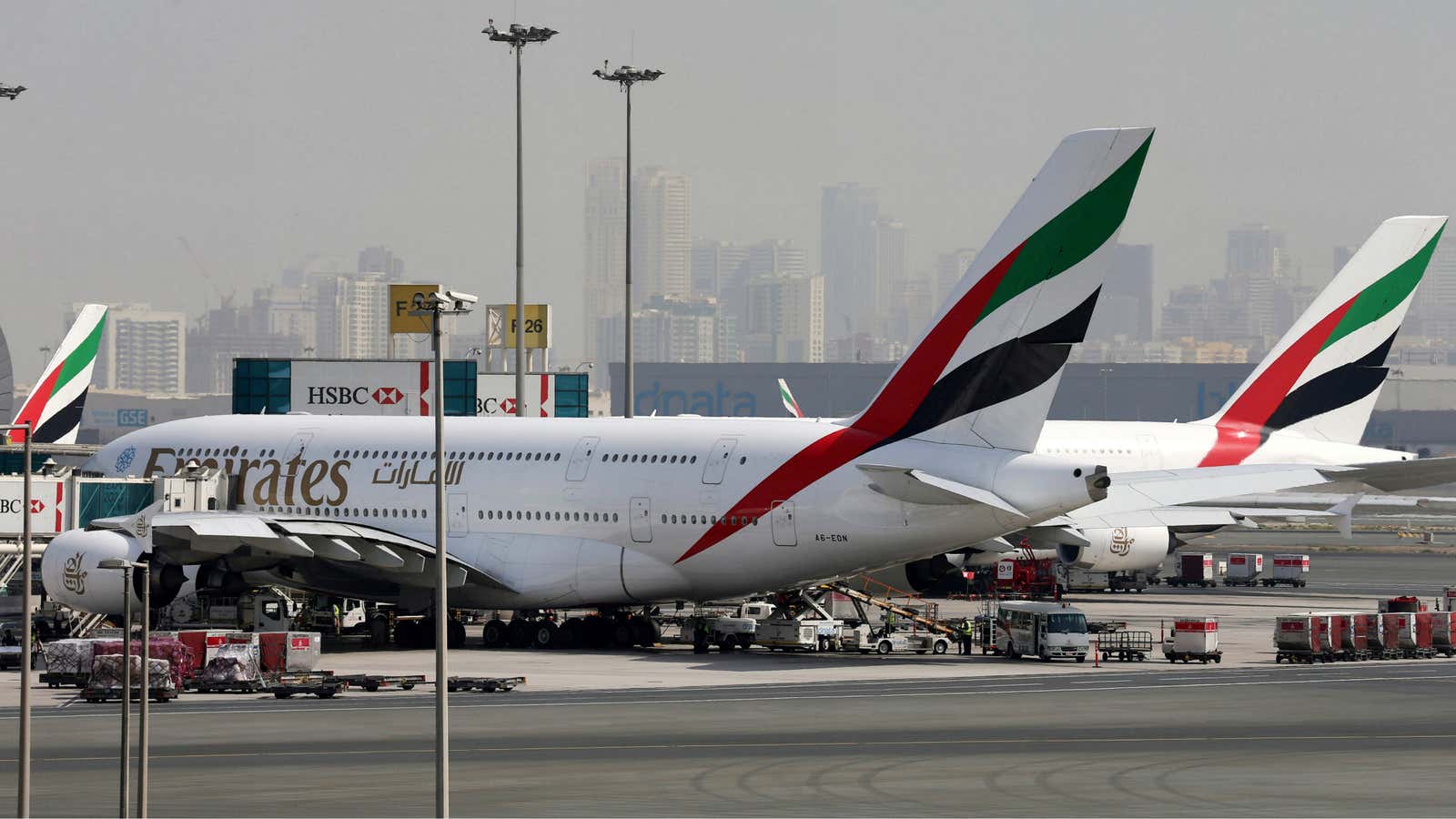For much of the past year, airlines have been caught in the cross hairs of Nigeria’s contracting economy. With foreign reserves depleted due to lower oil prices, Nigeria adopted tight currency controls, making it difficult for foreign airlines to repatriate dollar profits. In May, United Airlines cancelled its flights to Nigeria and now, Emirates airlines could be thinking about following suit.
Despite adopting workaround measures, including refueling in Ghana and cutting its twice-daily flights to Lagos and Abuja, Nigeria’s main aviation hubs, Emirates may be considering whether to completely pull out of Nigeria, one of its main African markets. The airline, based in Dubai, United Arab Emirates, is a unit of the Emirates Group, which is owned by the government of Dubai’s Investment Corporation of Dubai.
Speaking to reporters an International Air Transport Association event in Dubai, Tim Clark, Emirates president, said the company is ”reflecting” on “where it’s just not worth us to travel.” Clark said some of the places being considered are countries where “currencies have really gone down.” Put another way: Nigeria’s economic problems are becoming too difficult for Emirates to handle. In the meantime, the airline will fly only once a day to Lagos starting from the end of October.
Local airlines have also been hit by Nigeria’s economic woes. In the wake of Nigeria’s first recession in decades, Aero Contractors, the country’s oldest working airline, suspended operations indefinitely citing “grave challenges.” Arik Air, the country’s largest airline, was also forced to shutter operations for almost 24 hours last month amid a cash crunch. Local air travel has also been severely disrupted and travelers have been left stranded by domestic airlines unable to fuel their planes amid a pressing jet fuel shortage.
